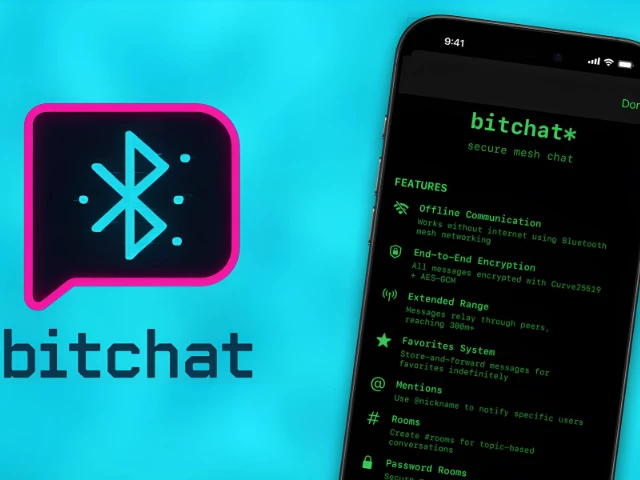Jack Dorsey launches 'Bitchat', a Bluetooth messaging app to rival WhatsApp
Bitchat enables encrypted, ephemeral communication between nearby devices, expanding privacy-focused tech

Twitter co-founder Jack Dorsey has launched a new decentralized, peer-to-peer messaging app called Bitchat, designed to operate entirely over Bluetooth.
The app, which does not require an internet connection, phone numbers, or central servers, is now available in beta on TestFlight, as per CNBC.
Dorsey, known for his push towards decentralization, shared the news on July 6, calling the project a personal experiment in Bluetooth mesh networks, encryption models, and store-and-forward communication.
Unlike traditional messaging platforms such as WhatsApp, which rely on personal data and centralised servers, Bitchat offers users encrypted, ephemeral communication stored solely on their devices.
my weekend project to learn about bluetooth mesh networks, relays and store and forward models, message encryption models, and a few other things.
— jack (@jack) July 6, 2025
bitchat: bluetooth mesh chat...IRC vibes.
TestFlight: https://t.co/P5zRRX0TB3
GitHub: https://t.co/Yphb3Izm0P pic.twitter.com/yxZxiMfMH2
The app creates Bluetooth mesh networks as users move through physical spaces, allowing messages to pass from device to device, even beyond typical Bluetooth range.
Bridge devices can extend the network, enabling communication over larger distances without needing Wi-Fi or cell service.
Messages disappear by default and never touch centralized infrastructure, underscoring Dorsey’s commitment to privacy and censorship-resistant communication.
Bitchat’s features also include group chats, or “rooms,” which can be password-protected and named with hashtags. The app supports “store and forward” functionality, enabling messages to reach users who are temporarily offline.
Future updates will introduce Wi-Fi Direct, expanding the range and speed of the Bluetooth-based network.
in review pic.twitter.com/5XWi4ZTFwh
— jack (@jack) July 8, 2025
This move builds on Dorsey’s previous support for decentralised social platforms like Damus and Bluesky, as part of a broader vision to decentralize various digital services, including payments and communication.
Bitchat's design, much like the Bluetooth-based apps used during Hong Kong's 2019 protests, aims to keep users connected during outages, internet shutdowns, or government surveillance, offering a censorship-resistant alternative to mainstream platforms.
With a commitment to user privacy and a decentralised framework, Bitchat sets itself apart from corporate-owned messaging platforms like Meta’s WhatsApp and Messenger, offering a radical shift in how we communicate online.



















COMMENTS (1)
Comments are moderated and generally will be posted if they are on-topic and not abusive.
For more information, please see our Comments FAQ